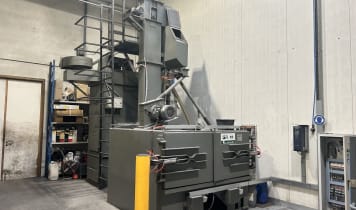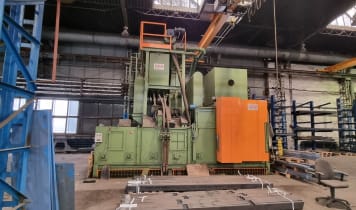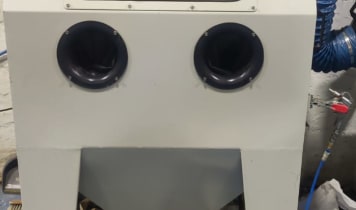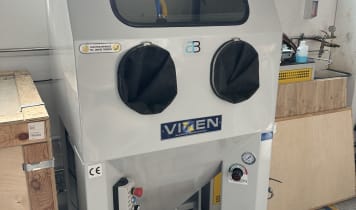In the past, these machines were called "sand blasting systems". Today the terms
"blasting equipment" or
"blasting system" are more commonly used, because blasting materials other than sand are used. The choice of blasting material depends on the workpiece material, the type of dirt and the desired level of cleanliness. Soft materials, like aluminium are blasted with different materials than harder elements like cast steel.
- It belongs in the realm of surface processing
- The choice of blasting material depends on the workpiece material
- This enables the workpiece to be freed from undesired shortfalls
Quality Great offers Personalized Other than quartz sand, there is a large variety of blasting material available: ground slag, glass beads, plastic blasting material, ground fruit stones and nut shells, and corundum. Particularly good surface-improving blasting material is dry ice and high pressure water.
Blasting machines and systems are available in a variety of different formats. Simple blasting cubicles are used to manually blast small sized products. They are made out of a small box, a small window and two openings for the worker's hands. The blasting material is fired onto the workpiece using an air
compressor and a blasting gun. In principle, the blasting of large items, like the bodies of vintage cars, works in the same way. The difference is, that specially guarded rooms for blasting need to be prepared in advance. The compressor and extraction system need proportionally fit this room. Blasting machine and system in use In the industrial arena, a
blasting system is a part of the
production line. An industrial blasting machine can be manually or fully automatically operated, in an automatic production line. Even for this use, there are many different sizes and uses. Entire halls are necessary for the blasting of some products in heavy industry (e.g. the manufacturing of large profiles like I-beams). There is no specific occupation for a "surface blaster". However, the work with a manual blasting system has a high injury risk associated with it, and therefore full protective equipment must be used. The breathing in of blasting dust is a health risk. This is usually a mixture of the fine-grained residues of dissolved dirt, surface material and ground blasting material. Therefore, it is necessary to wear breathing protection and install an extraction system near the
blasting system. The work can be performed by semi-skilled workers with little practice. The advantage of blasting is that one can control the results immediately. The blasting material is usually chosen so that damages to the workpiece can only occur through extreme negligence. Therefore, semi-skilled workers would be equipped to operate this machine.








